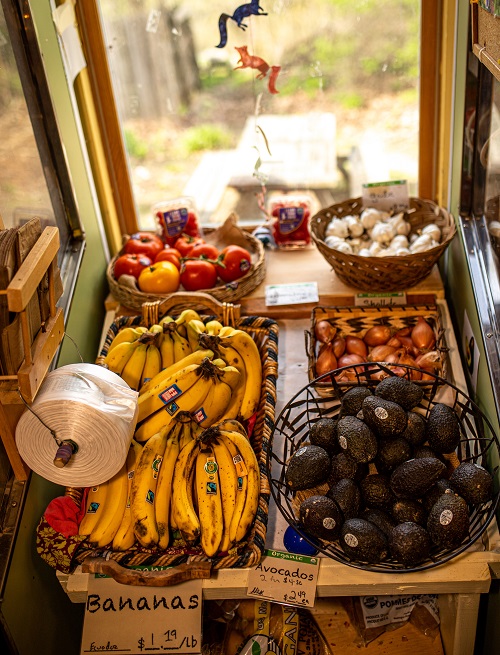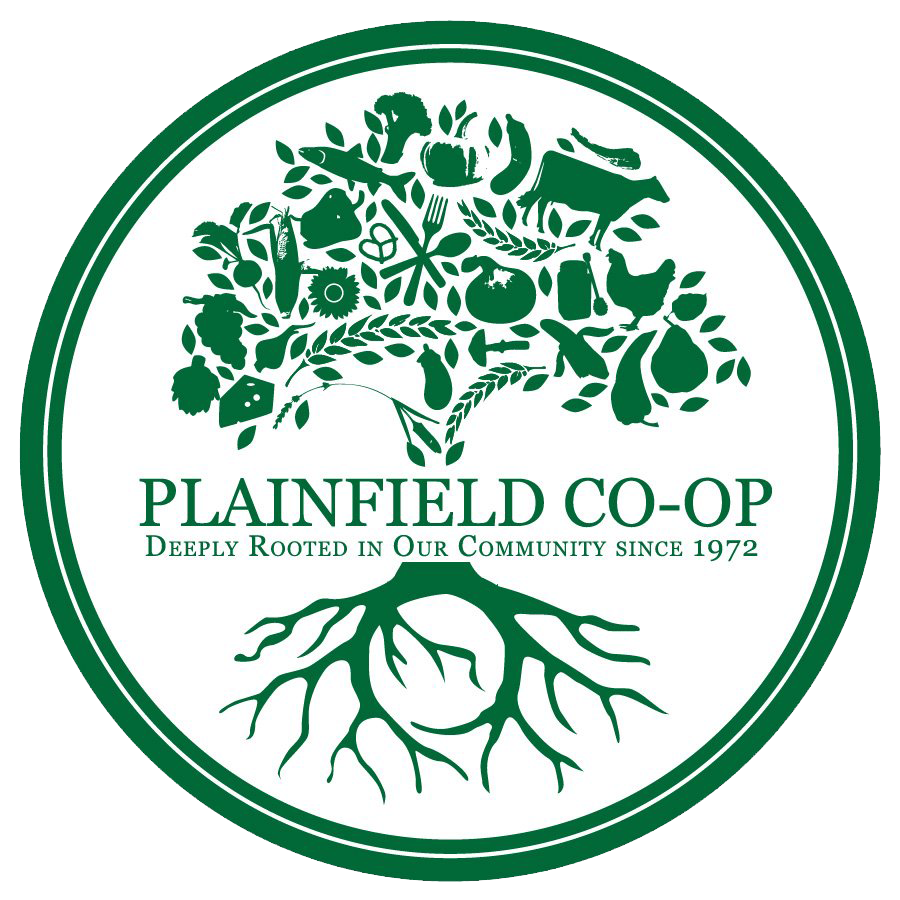
Mission Statement
As a cooperative association, the Plainfield Co-op serves local producers, growers, and shoppers. Our purpose is to provide an outlet of distribution for local producers and growers, and to generate a sense of community in what would otherwise be a dispersed rural population.
Global Ends
The mission of the Plainfield Co-op is further defined by our Global Ends:
The Plainfield Co-op will –
- Distribute healthy, affordable food and other goods
- Actively seek local producers and growers, and support the local and regional economy.
- Sustain the environment through its operations and the products it offers.
- Increase awareness of cooperative principles and of other cooperative businesses.
- Foster awareness about the quality and source of our food.
- Build connections that are essential for a vibrant community.
Cooperative Principles
Plainfield Co-op and most other Cooperatives around the world operate according to the same core principles and values, adopted by the International Co-operative Alliance in 1995. Cooperatives trace the roots of these principles to the first modern cooperative founded in Rochdale, England in 1844.
- Voluntary and Open Membership
Co-operatives are voluntary organisations, open to all persons able to use their services and willing to accept the responsibilities of membership, without gender, social, racial, political or religious discrimination. - Democratic Member Control
Co-operatives are democratic organisations controlled by their members, who actively participate in setting their policies and making decisions. Men and women serving as elected representatives are accountable to the membership. In primary co-operatives members have equal voting rights (one member, one vote) and co-operatives at other levels are also organised in a democratic manner. - Member Economic Participation
Members contribute equitably to, and democratically control, the capital of their co-operative. At least part of that capital is usually the common property of the co-operative. Members usually receive limited compensation, if any, on capital subscribed as a condition of membership. Members allocate surpluses for any or all of the following purposes: developing their co-operative, possibly by setting up reserves, part of which at least would be indivisible; benefiting members in proportion to their transactions with the co-operative; and supporting other activities approved by the membership. - Autonomy and Independence
Co-operatives are autonomous, self-help organisations controlled by their members. If they enter into agreements with other organisations, including governments, or raise capital from external sources, they do so on terms that ensure democratic control by their members and maintain their co-operative autonomy. - Education, Training and Information
Co-operatives provide education and training for their members, elected representatives, managers, and employees so they can contribute effectively to the development of their co-operatives. They inform the general public – particularly young people and opinion leaders – about the nature and benefits of co-operation. - Co-operation among Co-operatives
Co-operatives serve their members most effectively and strengthen the co-operative movement by working together through local, national, regional and international structures. - Concern for Community
Co-operatives work for the sustainable development of their communities through policies approved by their members.
